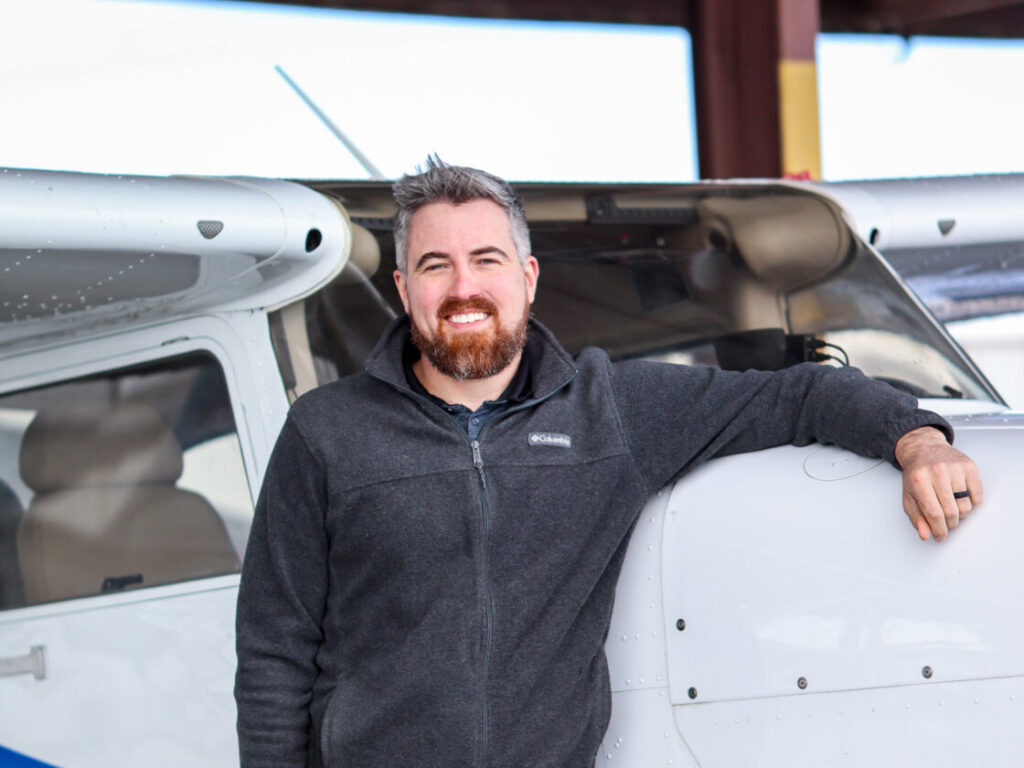Travis Sizemore - Flight Instructor
Aspen Flying Club
| Flight Instructor: |
CFI, CFII |
| Certificates Held: |
Commercial Single Engine Land, Commercial Multi Engine Land, Instrument Rated |
| Education: |
BSc and MSc in Geology |
Travis has over a decade of experience in science and technology. He taught a variety of science classes at the college level for many years while pursuing his Bachelor and Master degree in Geology. He decided to pursue his dream of becoming a pilot in 2021 and ultimately earned his Commercial and Certified Flight Instructor certificates at the Rocky Mountain Metro Airport in Broomfield, CO in 2023. He also earned his Instrument Instructor rating in 2024.
Travis’s teaching methods have been honed through years of instruction in his previous career. He puts a strong emphasis on organized and logical flight training and follows a standardized syllabus designed to optimize flight training by starting with the basics and building to progressively more advanced topics as students learn and grow. He offers abundant resources for students along the way and encourages multimedia-based learning alongside face-to-face instruction. He excels at breaking down complex topics into digestible parts to match the student’s level of interest and prior knowledge. Travis also has a year of experience in charter flying on a Hondajet and Citation CJ4 and incorporates the advanced techniques of enhancing safety and efficiency in his flight instruction.
5 useful questions to ask an instructor:
Why did you become a flight instructor?
Regardless of the answer, the way an instructor talks about why they fly is what is important. Look for
someone that is excited by teaching. They should have a genuine interest in giving others the gift of flight.
How long have you been flight instructing?
Some Instructors have thousands of hours under their belts and have been flight instructing for their entire
careers. Others have a few hundred and are just beginning. A seasoned instructor will have a lot of experience
but may have a set teaching style. A freshly minted instructor has less aircraft time but is able to relate to
common learning obstacles, having undergone their own flight training in the not too distant past. There are
advantages to both types of instructor.
How do you keep track of your student’s progress?
Using a syllabus is essential so that both student and instructor can track progress and milestones so make
sure your instructor uses one. Talk to other students and ask them what kind of reading their doing, what
books they’re using and the type of homework they’re getting. There should ALWAYS have some type of “homework”
assignment at the end of each lesson.
What is your availability?
Some instructors are part-time and work separate jobs during the week. Others are full-time, but may want to
have personal and family time on the weekends. Find an instructor with compatible availability. Flying at least
twice a week is the best way to progress quickly through accomplishments with less effort and less overall costs.
Choosing an instructor that is able to fly on the same schedule helps to keep flight training on a consistent path.
I’ve heard people talk about “stalling an airplane.” Can you tell me what it means?
This is a classic question. Regardless of knowing what an “aircraft stall” is or not, how an instructor explains
this concept will give great insight into how they can explain concepts. Are they patient? Do they use simple
terminology that is easy to understand? Do they ask questions to make sure their student understands, or do they
over simplify to brush off the question? Find an instructor whose instructing style is a good match.

